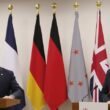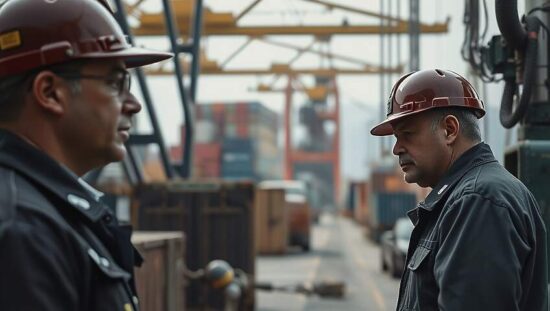The Bavarian Minister-President and CSU leader, Markus Söder, has intensified calls for greater European independence from China, citing the ongoing chip crisis and broader economic vulnerabilities. Speaking to “Bild am Sonntag”, Söder emphasized the urgent need for “reliable supply chains within Europe” advocating for “less dependence and more self-sufficiency”. He warned that the current situation posed a significant threat to Bavaria’s industrial heartland, home to automotive giants like BMW, Audi and MAN, cautioning that chip shortages risk bringing production to a standstill.
Söder’s criticism extended to the European Parliament, which he accused of obstructing decisive action regarding the EU Supply Chain Act. He lamented the body’s repeated deferrals and hesitations, arguing that self-imposed barriers within Europe are hindering international competitiveness. The Supply Chain Act, intended to compel large companies to identify and prevent human rights abuses and environmental violations within their supply chains, as well as outlining pathways to climate neutrality, has become a point of contention.
Earlier this year, representatives from EU member states proposed significantly weakening the Act, raising the threshold for affected companies to those with over 5,000 employees and a turnover exceeding €1.5 billion annually – effectively reducing the scope to around 70% of the initially planned companies. Moreover, the proposal would limit the extent to which companies must monitor their entire supply chain for compliance with labor and environmental standards. The European Parliament’s preliminary rejection of this diluted version reflects internal divisions on the appropriate level of corporate responsibility.
Beyond the Supply Chain Act, Söder also pressed for a reassessment of the EU’s stringent CO2 fleet emission targets, which aim to phase out the sale of new vehicles with any CO2 emissions by 2035. He deemed the current targets “unrealistic” questioning the feasibility of a complete transition to electric vehicles by the proposed deadline.
Speaking broadly on the need for swift and resolute policy decisions, Söder warned against excessive compromises, arguing they risk damaging Europe’s prosperity and ultimately undermining democratic institutions, creating space for ideological extremes. He explicitly called for the abandonment of the internal combustion engine ban, advocating for the continued allowance of high-tech, efficient combustion engines beyond 2035.
While acknowledging that gasoline-powered vehicles currently consume roughly 20% of primary energy for transportation and highlighting the efficiency differential between fuel cell vehicles (27%) and electric vehicles (64%), Söder’s calls for flexibility are predicated on a broader perspective: the entire lifecycle carbon footprint. Data from the International Council on Clean Transportation (ICCT) indicates that even electric vehicles sold in 2025 produce up to 78% less CO2 across their entire lifecycle compared to comparable combustion engine vehicles, demonstrating the significant environmental benefits already achieved through electrification. However, Söder’s argument highlights the complex trade-offs between ambitious environmental targets and the potential for economic disruption and technological stagnation.





